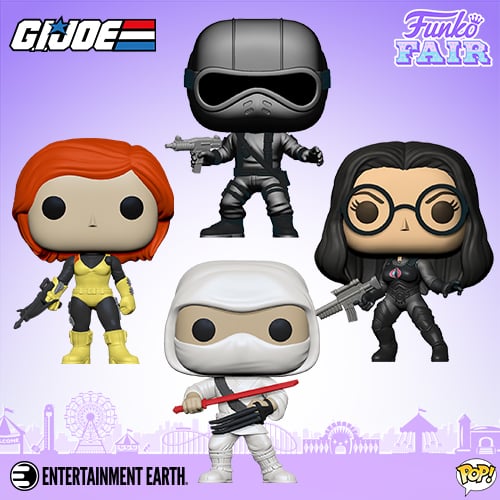 This time that awesomeness is Chris Butler. You might not recognize his name, but you should recognize some of his music as the songwriter and guitarist for The Waitresses. He formed the band and wrote the songs including their most recognized hits, “I Know What Boys Like” and “Christmas Wrapping”. The band eventually went their separate ways in 1984, but Butler has continued to write and play music. Find out more about The Waitresses, those hit songs that he wrote and what he has been doing since then as we get on to some selections from my interview with Chris Butler…
This time that awesomeness is Chris Butler. You might not recognize his name, but you should recognize some of his music as the songwriter and guitarist for The Waitresses. He formed the band and wrote the songs including their most recognized hits, “I Know What Boys Like” and “Christmas Wrapping”. The band eventually went their separate ways in 1984, but Butler has continued to write and play music. Find out more about The Waitresses, those hit songs that he wrote and what he has been doing since then as we get on to some selections from my interview with Chris Butler…Q: When did you know you wanted to be a professional musician?
Chris: NEVER wanted to be a professional musician! I wanted to be in a great band, wanted to be an artist, wanted to be a writer. I know and have great respect for many professional musicians. But a pro plays whatever gig comes up (weddings/club dates/pit orchestra work/etc.). And they are masters of their instruments… none of which I wanted to do, or am.
Q: When and how did you get your own start in the music industry?
Chris: High school playing drums in a greaser hot rod band. Also hung out at WHK in Cleveland and got interested in radio.
Q: Please tell us a little about what you did prior to The Waitresses.
Chris: In College [Kent State, Ohio], I was in a blues band. Lots of learning and listening. No place for my drums, so picked up bass, then guitar. Best band in Kent was (and still is) 15-60-75 (a/k/a The Numbers Band). My real break came when I played bass with them from approximately 1975-78. Best band ever… except Tin Huey, which I joined in late 1978 which was the most creative band ever! We did one record for Warner Bros. which did not do well. I fell in love with New York City and moved there. Played with a bunch of experimental ad hoc groups, then formed The Waitresses in late 1980.
Q: Please discuss any of your personal musical influences and who molded and inspired the artist you were back in the '80s and have since become.
Chris: I was born in 1949, so I grew up with rock and roll. My parents were into big bands and Broadway shows. I learned folk guitar, then lost it when I saw The Who on Shindig. In college, I was heavily into jazz and blues (I was one of those effete snobs)… but always, it was The Who. Oh… and Beefheart, Albert Ayler… anything outside. I’m a big funk guy, too (played in pick up funk bands in the '70s). Love greasy soul music like Stax/Volt. Little Feat rule. Then along came the CBGB’s bands who blew Little Feat off my turntable. Then the Tin Huey guys turned me on to the English art bands (anything remotely associated with Robert Wyatt, Eno and Fripp), all those krautrock groups… and then along came XTC! Saw Madness at Hurrah in NYC and they lead me to ska. In general, I love experimental outside improvised stuff, afro-pop, electronica, early rap, and all my friends’ records!
Q: Please tell us a little about how and why The Waitresses came to be. How did you find your female lead vocalist Patty Donahue?
Chris: Patty was the girlfriend of Dave Robinson, the drummer from The Numbers Band. I had written “I Know What Boys Like”, went to Walter’s Bar [in Kent] one lunch time, stood on a chair and asked if anyone was interested in a making a recording. Patty piped up with a slightly slurred “sure!”.
Q: Did you really receive your record deal for The Waitresses before you even had a band?
Chris: Yes. Island’s baby label, Antilles, wanted “I Know What Boys Like”. They needed a B-side, so I fibbed and grabbed some of the Contortions, Dan Klayman from Akron, Ralph Carney from Tin Huey to record “No Guilt” as the flip.
Q: I read that you wired Patty Donahue your last $50 so she could get to New York to join you. Can you confirm that and tell us about how the rest of the band came together?
Chris: True. For the others, I asked around for who was the coolest band in New York City and some pals said the Contortions. I met Pat Place who was working at the Bleecker Street Cinema and she introduced me to the members. All Midwesterners like me, which I preferred because we work hard out there and they could play. We did some shows, then Don Christianson wanted to start the Raybeats. Enter Billy Ficca. Then Ralph [Carney] got busy. Enter Mars Williams. Then David Hofstra wanted to focus more on jazz bass. Enter Tracy Wormworth. It’s very hard to form and keep a band together in New York City. The jazz mentality rules meaning that musicians often play in multiple bands/free-floating personnel compared to a fixed band which is a marketing entity.
Q: Your song “I Know What Boys Like” was originally released in 1980, but would not hit the charts until 1982. What caused it to get noticed in 1982 and not sooner?
Chris: The song just kept hanging around. Didn’t break, but didn’t die either. So the live band was formed to try to chase the song and see where it might lead us.
Q: Please take us back to when “I Know What Boys Like” was written and recorded. What is the back story about how that particular song was conceived and written? What inspired it? How long did it take to write?
Chris: I was in Tin Huey and was trying to write as much stuff as I could. I was a baby songwriter, so whatever popped out I was grateful for. I had borrowed a pal’s 4-track TEAC, and “I Know What Boys Like” came fairly quickly. I was irked that the girls in the local watering hole were going home with the lawyers who had cocaine. I was strictly a beer budget guy. So the song has a cranky edge. Patty was a good sport, and agreed to give singing on my recording a try. It was recorded on an 8-track at Rick Dailey’s house because he had good microphones – a guy I was turned onto by Liam Sternberg [a songwriter/producer also from Akron best known for writing the Bangles hit “Walk Like an Egyptian”].
Q: Did you have any feeling that the single was going to be something special or get the attention it eventually did?
Chris: I was kind of ashamed of it! The arty Tin Huey guys were not impressed, as you might imagine. But other folks thought it was a hit, though I had to wait until Tin Huey had run its course and I had moved to New York for it to work its goofy magic.
As mentioned, “I Know What Boys Like” was originally released in 1980, but received more attention in 1982 when it was re-released as the first single from the band’s debut album Wasn’t Tomorrow Wonderful. It only peaked at #62 on the Billboard Hot 100, but did receive regular radio airplay and has since become common to find on '80s compilations, '80s flashback radio shows and probably even a few strip clubs. Here is the video for “I Know What Boys Like” by The Waitresses…
Q: What do you remember about filming the music video for “I Know What Boys Like”?
Chris: The video was quick and dirty since it was a new medium, we were not actors and the budget was minuscule. Best thing was being able to use our filmmaker pals’ color Xerox effect for the solo section.
Q: Who says “1-2-3-4″ at the beginning of the video?
Chris: In order to cue the band and to sync the playback with the footage, sound guys have to make a tape with an added countoff and a pilot tone which (at the time) the Nagra tape machines used in film and video production… so it’s actually the sound guy’s voice. It was supposed to be edited out, but for some reason the count stayed in. I dunno why.
Q: Videos became so important to a song’s success right around that same time. What are your thoughts on the impact that MTV had on music in the '80s, especially in America?
Chris: MTV was cool for about five seconds. Then it became a lobby for a lifestyle which had some of the worst aspects of the music biz. Glitz-glam-drugs. All crap.
Q: What changed for you personally and for the band after this single’s success?
Chris: I really just wanted to be a songwriter, not a bandleader. I did not feel either competent enough as a player, or aggressive/ savvy enough to navigate the music biz. But “I Know What Boys Like” kinda begat a buzz and this is a blessing, so off we went. You have no idea how hard the work is trying to break a band. And when a little success comes, more stress and more work comes because now you gotta try to keep your job. Rough-ass business, boy.
Q: When you have a hit song like that, do you (or did you) ever get sick of playing it? What are your feelings regarding “I Know What Boys Like” today over 30 years later?
Chris: Never got sick of playing it. It’s actually a fairly complex little tune musically, as well as being sorta silly. Mixed feelings then, mixed feelings now. I know I wrote much better songs, but that’s the one that connected with folks… so I am equal parts grateful and miffed!
Many of The Waitresses’ songs are like short stories just being sung which is, according to Butler, “why they’re so goddam wordy!” Another example of this is their surprise holiday hit, “Christmas Wrapping“. The song was originally released in 1981 and has gone on to become a perennial holiday favorite. Here, Butler takes us through how this song came to be:
It was August of 1981… high summer and a zillion degrees… and we are recording a Christmas song. There is so much wrong with this picture I’m not sure where to begin complaining. We were toast from too many months on the road, trying to turn “I Know What Boys Like” into some kind of career with legs. I had no time to write material for a second album, let alone steal a few precious moments to cobble together something about a holiday that I absolutely loathed. I am Super Scrooge – when everyone is getting all misty watching It’s A Wonderful Life, I’m the guy screaming, “Jump, George Bailey, jump!” at the TV screen.
It was all Michael Zilkha’s idea. We were signed to his Ze Records, and he had come up with the concept of everyone on his roster contributing an original song for a Christmas record. Only Ze was not the home of artists capable of warm, fuzzy holiday sentiments. We had hoped that Michael would forget about the whole thing, but he stayed smitten with this idea, and the next thing I knew he had booked us into the Electric Lady Studios and I had three days to come up with something. Stress. Pressure. Panic.
I thought, “Make-it-a-story-about-a-working-girl-too-tired-to-celebrate-the-holiday-too-tired-to-get-in the spirit-but-the-spirit-happens-anyway-because-that’s-the-magic-of-Christmas-blah-blah-blah-make-it-non-religious-think-Dickens-add-a-love-theme-gotta-have-a-love-theme-this-is-pop-music-after-all-steal-some-music-from-another-half-finished-tune-it-will-have-to-do-think-Preston-Sturges-think-O.Henry’s “Gift Of The Magi”-gotta-have-a-title-Kurtis-Blow-had-a-song-“Christmas-Rapping”-mine-has-a-wrap-around-plot-that’s-tied-up-neat-as-a-ribbon-around-a-Christmas-gift-call-it- Christmas-Wrapping-a-pun!-puns-are-good-f**k-just-get-it-done-just-get-it-DONE!”
We had two days to record and mix it. I finished the lyrics on the cab ride over to the studio. I played the band my crappy home demo. Had an idea for a brass part so I called Dave Buck and prayed that he’s free to add a trumpet. Patty did a nice job, only two takes and she nailed the vocal. It was actually working out okay. Relief. Yaaaay us. We pulled it off. And when it was done, it was promptly forgotten, because we immediately left for another three months on the road.
And then it’s a day in November, we are in Rochester, NY, and I called home and my wife says “you are all over the radio!” and I say “great!” thinking “I Know What Boys Like” is finally getting some real play. And she says “no… it’s that Christmas song.”
The song which started out as just a side note became an unexpected hit. It has become a perennial holiday favorite and has been covered several times most notably by the Spice Girls and on the show Glee. Here is a music video for “Christmas Wrapping” by The Waitresses…
Q: What are your feelings regarding “Christmas Wrapping” today 30 years later?
Chris: It cheers me up, and has been a gift… one that a “Scrooge” such as I probably did not deserve.
Q: It has to be pretty cool hearing your song still being played each year come December.
Chris: My friend, it is very cool, and utterly amazing to me.
Q: Did you ever consider singing lead yourself or did you always want a female lead?
Chris: I love to sing and have an okay if unremarkable voice. But “I Know What Boys Like” had a female lead, so I had to follow that formula.
Q: Many of your songs are written from a female perspective. How did that work for you and what allowed you to write songs from that angle?
Chris: Loved doing it. How many men get to really try to figure women out? To ask deep questions? Try to get the psychology? It would be presumptuous for me to think that I have ANY special knowledge, but for a minute there, I did do my best to “get it right”.
Q: Were they still personal to you at all?
Chris: Absolutely! Some things are universal or at least gender neutral. And many a man has written female characters in plays, etc. Never really knew what all the fuss was about regarding that.
Do you remember the TV series Square Pegs which starred a young Sarah Jessica Parker? It only lasted one season in 1982-83. Do you remember the theme song to the series? It was performed by The Waitresses who also even appeared in an episode themselves. Here are the opening credits to the show where you can hear the instrumental “Square Pegs” by The Waitresses…
Q: The Waitresses were labeled as a “new wave” band. What are your feelings towards that generic label of “new wave” in general and having it attached to your work?
Chris: Well, to me New Wavers were fey British English majors with Morrissey haircuts and gurgling synths (which I like, btw… don’t get me wrong!). I was grateful that the music business cracked open for second and let all kinds of new stuff come on the scene. There were alternative clubs, radio stations, publications… a parallel universe to the main stream music biz. Funny – it was bigger than a minor musical-historical blip, but smaller in that the open door did not stay open for long.
Q: You worked with producer Hugh Padgham on your 1983 album Bruiseology. What can you tell us about Padgham and your experience working with him?
Chris: Brilliant engineer, a gentleman… despite our confirming why he is often quoted as saying he’s reluctant to work with American bands. We were not ready for him, frankly. If we could’ve put off recording for another 3-6 months or so, I think we would have been better prepared.
 The Waitresses released their second album, Bruiseology, in 1983 to little fanfare despite being produced by Padgham. It barely cracked the album charts (peaking at #155) and did not include a hit single. Lead singer Patty Donahue left the band in the summer of 1984, was briefly replaced but then later returned, though the whole band would dissolve later that same year. Sadly, Donahue has since passed away (in 1996 at the age of 40 due to lung cancer), but her voice lives on with The Waitresses’ music.
The Waitresses released their second album, Bruiseology, in 1983 to little fanfare despite being produced by Padgham. It barely cracked the album charts (peaking at #155) and did not include a hit single. Lead singer Patty Donahue left the band in the summer of 1984, was briefly replaced but then later returned, though the whole band would dissolve later that same year. Sadly, Donahue has since passed away (in 1996 at the age of 40 due to lung cancer), but her voice lives on with The Waitresses’ music.Q: Why do you feel the band wasn’t able to recapture the magic of your first two hits? Why did The Waitresses split up in 1984? Did you ever regret that or was it just time to move on?
Chris: I don’t know. We broke up because the second album pressure was too much, at least for Patty. Big regrets – unfinished business. I always envisioned the band as a three-album project, a triptych if you will. I even wrote a third album thinking that if we ever kissed and made up, we would need material. I’ve actually been mining that song pile for years now.
Q: What do you remember best about the decade of '80s music? What lasting impact do you feel music from the '80s has made?
Chris: Hmmmm… It was absolutely the acme of analog recording meaning just gorgeous sounding records. God bless Rupert Neve, Baron Studer, SSL, Ampex 456 & 499, +12 recording!
It was one of those rare occurrences where something comes up from the street that pushes its way into the mainstream. Read Love Goes To Buildings On Fire [book by author Will Hermes which references the Talking Heads’ song and discusses the five years of 1973-78 in New York City that changed music] because the same thing was happening in the '80s with Latin music and with the birth of hip-hop. It was a very experimental time.
There was lots of music biz dough sloshing around, which supported some risk-taking, or at least made alternative musics and an alternative infrastructure viable for a minute.
The '80s had a nice mix of music made by machine and made by humans. The balance is lost now, but it was cool to have synths and sequencers AND saxes and Stratocasters!
Q: Please tell us a little about where your music career has taken you since the '80s. What is Future Fossil Records?
Chris: I continue to write and play. I have been playing drums in a surf band of Ohio ex-pats called purple k’niF (a Cleveland in-joke). I’ve release four full-length albums (or five if you count one that was a radio-only promo). I’ve played in lots of pick-up groups around the NYC area from Dennis (Smithereens) Diken’s “Bell Sound” group to a Spinal Tap tribute. Done some radio stories for NPR, enjoyed a revival of the Tin Huey group in the early 2000’s… lots of stuff. Future Fossil Records is a private label that I run for my own and Tin Huey’s stuff.
Q: How have your priorities or goals changed over the years?
Chris: I am an old fart now, but I still like to write and play. I have a son and he’s a great kid. I have all the tools I need to putter around with, and a modest income from royalties… enough anyway to do projects like “The Devil Glitch” (Guinness Book’s World’s Longest Recorded Pop Song at 69 minutes – MajorGlitch.Net (archived link) and some radio stories.
Q: What are some of your proudest professional accomplishments?
Chris: I’ve never been sued and have never sued anybody. I was honest in my business dealings and managed to be extruded from the musical sausage machine relatively intact and unscathed.
Q: What else is Chris Butler up to nowadays? Musically and otherwise?
Chris: Oh…Mr. Busy as usual. I am writing and recording a memoir based on songs that mean a lot to me. I have more tunes written that need to be recorded and am reforming The Cranks, a band I had in the early 2000s. I am a better writer and player now, and get to play with some really great musicians just for fun. I’ve managed to have some personal contact with most of my heroes: members of XTC, R. Stevie Moore, Pete Townshend, etc. “I Know What Boys Like” keeps getting sampled (thank you, Jay-Z), and “Christmas Wrapping” seems to becoming a semi-standard. Not bad…not bad at all.
Agreed. I am so pleased that Chris took some time to answer my questions so I could share them with you here. Be sure to keep up with him at his website, FutureFossilMusic.com. I want to take this opportunity to again thank Chris Butler for his contributions to '80s pop culture especially through The Waitresses and, even more, for going back to the '80s with us here for a little while as well.
Follow @OldSchool80s on Twitter for a daily dose of '80s nostalgia and read more Retro Interviews on RD80s.

 shareasale.com
shareasale.com StickerShoppe.com
StickerShoppe.com


 Elfi Santa
Elfi Santa

Follow RD80s on Social Media